"Being There" -- Essential Viewing For the Right Now
 Monday, July 17, 2017 at 5:41PM
Monday, July 17, 2017 at 5:41PM 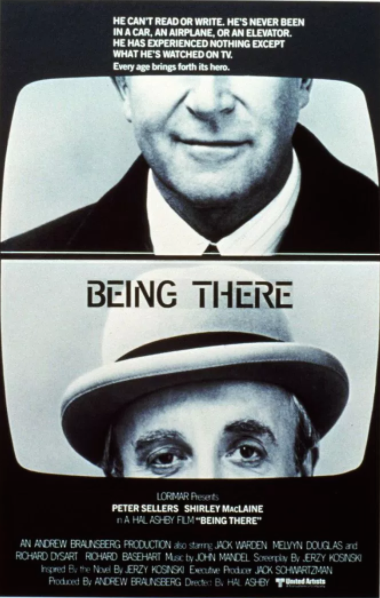 by Nathaniel R
by Nathaniel R
Hal Ashby’s Being There (1979) is a fortune teller. And the future it foretells isn’t rosy. The classic film about a TV-loving cypher who Forrest Gumps his way into history is approaching its 40th anniversary, but its essential viewing for the right now. Don't wait until 2019 to see it.
Among the film’s many queasy previews of life in the early 21st century is the proliferation of screens. Here that takes the shape of television, with Ashby frequent crosscutting to whatever is on the TV in a given scene. Though the content we see is recognizably dated, its intrusion is evergreen.
Hidden within the prophecy of multiple screens replacing actual experience, is an even sharper notion of the screen as a mirror...
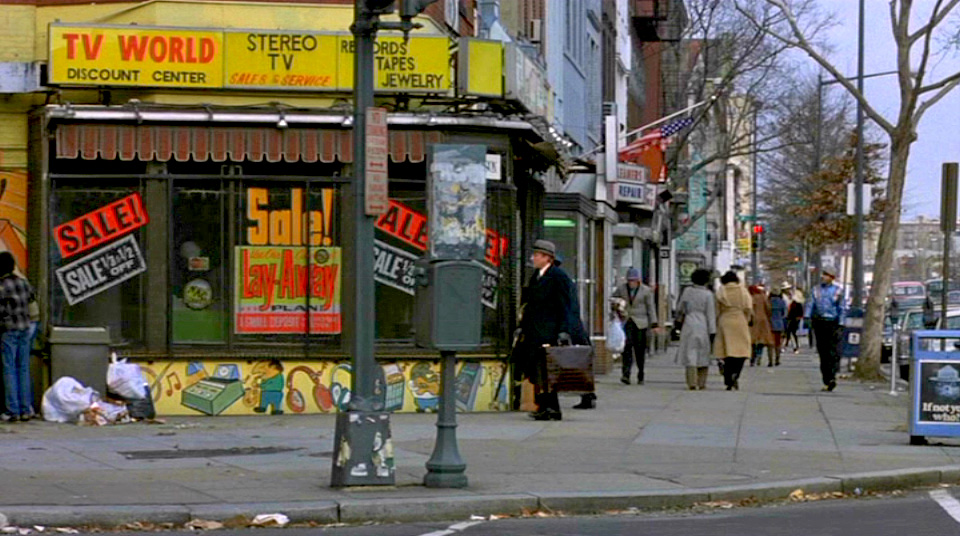
For the first reel of Being There we mostly watch the protagonist Chance (Peter Sellers) watching television. He often mimics the body language he sees there. When he’s forced out of his longterm home, a home he appears never to have existed outside of suggesting that he’s an allegorical inkblot rather than a character, he wanders the city streets of Washington DC. The film’s first definitive image is a shot of Chance noticing himself on a TV screen in a window. He is puzzled by his reflection (which is, in actuality, a store camera recording him) as if he’s never encountered a mirror.
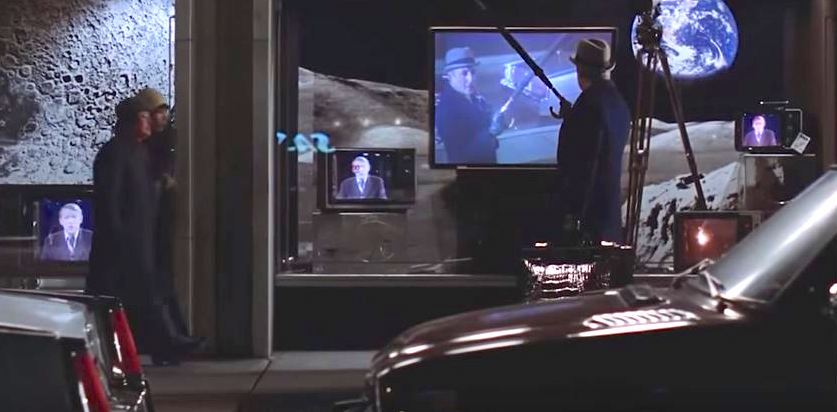
When he gets the chance to be on TV again, his stone face betrays an otherwise rarely seen excitement. It’s no surprise when we later see him watching himself on TV, his image doubled yet again.
But the movie’s true genius in this regard is not an easy potshot at the narcissism so familiar to us in the age of selfies and YouTube. Rather it’s in the way it relocates that tendency, dropping it into a sociopolitcal context. In the 21st century politics are more partisan than ever; we regularly hear that we’re all living within bubbles and echo chambers, perpetually wanting our own opinions reflected back at us through others.
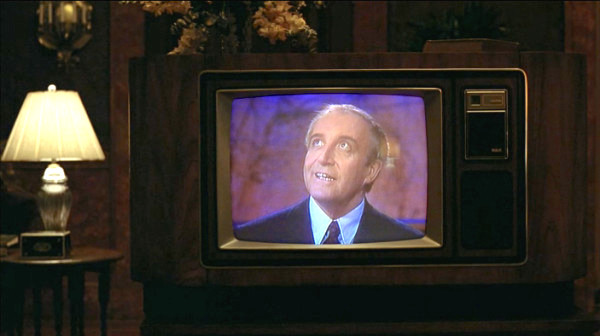
Chance’s poker face and his tendency to answer questions by essentially repeating them, allows him to becomes a mirror himself. Whoever speaks to him is free to project their own fantasies on to him or hear what they want to hear when he speaks. He gladly accommodates the impulse, an ever amiable blank slate.
Nowhere is this more true than in the house of Eve and Benjamin Rand (Shirley Maclaine and Melvyn Douglas) a wealthy couple with an outsized influence on the ruling class. Benjamin immediately transfers his political capital and, essentially, his wife to Chance. Eve throws herself at an unresponsive Chance. In the absence of an exchange of bodily fluids, she sloppily projects all over him instead.
In one of the film’s most overtly comic scenes, Eve misinterprets Chance’s “I like to watch” mantra, and masturbates to orgasm. The next morning, still blissful, she doesn’t even know how well she’s summarizing this idea of projection and self-regard.
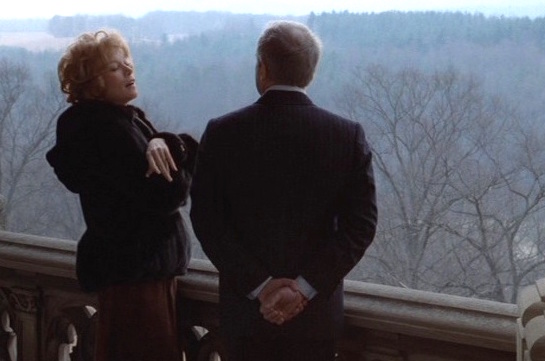
You uncoil my wants; desire
flows within me, and when you
watch me my passion dissolves
it. You set me free. I
reveal myself to myself and I
am drenched and purged.
Being There doesn’t just evoke the narcissism and feedback loops of our current culture. Other prophesies include but are not limited to the demise of newspapers, the media’s coddling of ignorance as a virtue, the rise of totally unprepared political figures with no understanding of politics, and even a hilariously sharp take down of “white privilege” which was a concept that had been introduced before Being There but has only recently embedded itself in the mainstream vernacular. Being There began life as a satire in 1979 — in 2017 it’s a tragicomedy and, frankly, something of a horror film.



Reader Comments (15)
Random but beautifully written. Why did you write about this now? I am curious.
An insightful write-up. Love it:)
BUT DID MELVYN DESERVE HIS OSCAR??!
Just kidding - This has been on my to-watch list for pretty much ever. Maybe should have gotten around to it before it became "something of a horror film."
Excellent, excellent film. One of my favorites.
I loved this movie.
So beautiful, so poetic. I will revisit it soon.
The best end credits scene ever?? Very out of place with the tone of the movie, but still ridiculously hilarious.
Just one of my eternal favorites and I will never understand why Hal Ashby isn't as well regarded as he deserves.
Great write-up! A re-watch is definitely in order. I remember loving this movie, but haven't seen it since I was pretty young. I feel like critical opinion of the film isn't all that high these days?
Basketball Jones! Perfect vibe for this film.... The best of 70's culture contribution, along with Hal Ashby.
Cal -- it was an assignment from the national critics institute i just finished. 2 crazy weeks of writing and mentorship and workshop discussions of reviews. i can't use most of them on the blog since they were for theater in development pieces but i figured i'd share this one, the one movie we watched.
Chris Feil -- Ashby is AMAZING. I totally agree. I love all of his movies. And they're weirdly undervalued but for HAROLD & MAUDE which everyone seems to love.
Sellers was bitterly disappointed when he lost the Oscars to Hoffman. having won the golden globes comedy actor n NBR, he thot tt he had a good chance (pardon the pun) in winning.
Great film and Hal Ashby definitely deserves to be more appreciated today (particularly Shampoo).
Nathaniel, let's also recall Jerzy Kosinski's source novel. Hal Ashby didn't cook up this great film by himself.
I had read the book before the film came out, and while I'm not denying the brilliance of Ashby's adaptation or Sellers' performance, much of the power of the story comes directly from the book. Let's respect the original storyteller who came up with Chance the gardener and how he'd be misinterpreted as a political genius.
Just sayin'...